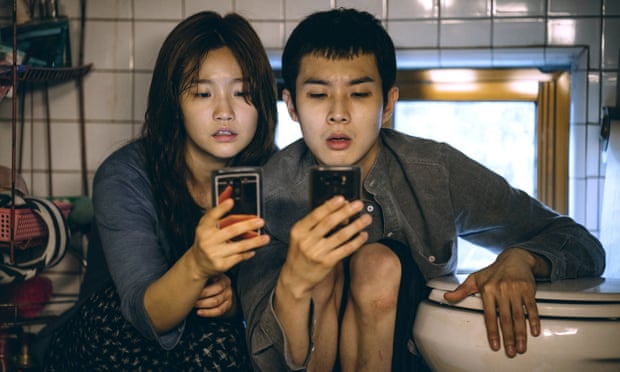by HAHNA YOON

Bong Joon-ho plays on working-class stereotypes and fails to examine the system that created the film’s rich and poor
Like the character Kim Ki-woo (Choi Woo-sik) in Parasite and its director Bong Joon-ho, I too have entered the home of Seoul’s elite as an English tutor. I live in one of those old Seoul villas and memories of rushing my own white envelope to the bank to pay outstanding phone bills allows me a small window into what’s been called Bong’s “dystopia”. For many, the critically acclaimed film nominated for six Oscars signals the beginning of an overdue appreciation for Asian cinema but it is precisely the issue of representation that makes the undoubtedly beautiful film troubling. Despite being hailed as a social commentary on contemporary South Korean society, Bong misses the mark in his portrayal of the country’s economic crisis and plays on stereotypes of the working class in an attempt to critique capitalism.
Kim Renfro for Business Insider says Parasite is “best seen with absolutely zero context”. It’s true – knowing little about South Korea makes the film easier to digest. Parasite begins on the premise that all four Kims are unemployed and presumably, it is harder for the Kim children – Ki-woo and Ki-jung (Park So-dam) – to find work, as neither have college degrees. The two characters are more plausible without knowing that South Korea’s millennials are some of the most educated in the world – with 70% aged 24 to 35 having some form of tertiary education. (In real life, could Ki-woo have scored so poorly on the exam that he was not accepted into any university whatsoever? Unlikely.) Bong is praised for highlighting Hell Chosun – a term to describe the socioeconomic conditions that make it a nightmare to get a job even after receiving a degree but, ironically, this term barely applies to the Kims. Without degrees, it is more likely they would look for work in a sector with a huge labour shortage – such as factory production … or housework.
The Guardian for more